Arthur's 'Alf Dozen
A woman tries to rebuild her husband's mind using the machine that dismantled it; a botanist touches the soul of a planet; the mind of a warship plots revenge on the powers that destroyed it; a photographer tries to come to terms with his inexplicably dead wife; a scientist experiments with a drug that allows direct access to the minds of others; a disillusioned holy warrior hunts fugitives using insect-powered tech.
What's on offer on the Clarke Awards shortlist this year? — or — Let's see if we can get through a post about any kind of SFF award without it somehow becoming a national scandal (1).
I have a lot of time for the Clarke awards. It's the only SFF award I'm aware of (2) where a bunch of people sit down and just read every damn book on the longlist before deciding which they think is most meritorious. That's a whole lot of work going into producing a shortlist (3). This year, we have a varied and intriguing cross-section of where the genre is going.
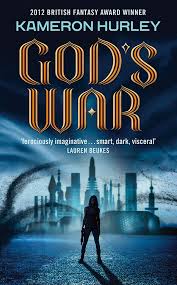 God's War by Kameron Hurley (Del Rey)
God's War by Kameron Hurley (Del Rey)
The first of a series and Hurley's first published long fiction, God's War gives us a planet gripped by a holy war. A former Bel Dam (a hunter of deserters) turned bounty hunter teams up with an enemy expatriate for the shadiest of shady assignments tracking down a missing alien ambassador. The story — like its protagonist — is brutal, complex and desperate, overshadowed by the generations-old war that has become the driving force on the planet. God's War is an action SF — the characters are well-drawn, and they're constantly in trouble. The setting is remarkable for presenting multiple Islamic cultures without homogenising them and for the bizarre biotech that underlies the nations and their bitter war — a technology of insects and infection whose practitioners straddle the line where sufficiently advanced technology becomes magic.
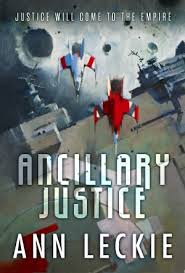 Ancilliary Justice by Ann Leckie (Orbit)
Ancilliary Justice by Ann Leckie (Orbit)
Another debut, the protagonist of Justice is the AI of a capital ship that, in its heyday, controlled a vast number of slaved human ancillaries to serve as the army of the Radch, an ruthless expansionist empire. Except the expansion is on hold and events have seen her ship destroyed, her intelligence restricted to a single human body. She wants revenge. The plot plays out 'now' as she puts her plan into action, and 'then' showing the events leading up to the ship's loss. The non-human protagonist is very well realised — getting inside the mind of something that is human only via the reflections of the humans it has had dealings with. Not only does Leckie give us a genderless lead, because the Radch language has no gendered pronouns, the actual genders of most of the other characters remain undetermined, which is an elegant way of emphasising the alien-ness of the narrator and her culture.
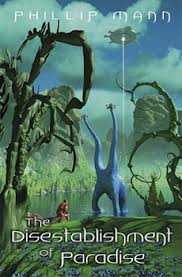 The Disestablishment of Paradise by Phillip Mann (Gollancz)
The Disestablishment of Paradise by Phillip Mann (Gollancz)
Phillip Mann has a distinguished pedigree in SF, and this is his first book out since 1996. Paradise is very much old-school SF. The protagonist is a botanist trying to come to terms with the ecology of Paradise, which in the years since its naming has become more and more antithetical to its human colonists. At the start of the book the authorities are writing the planet off and pulling everyone out, but rather than give up, she goes walkabout in the alien ecosystem on a journey as much spiritual as physical, opening herself to the planet's soul. Paradise is the account of an outsider looking in — both the botanist trying to connect with her planet, and the fictional writer later chosen to present her story.
 Nexus by Ramez Naam (Angry Robot)
Nexus by Ramez Naam (Angry Robot)
What if there was a drug that let you touch the minds of others? Wouldn't that be fantastic? Yes, Naam shows us. It would also be terrible, and a lot of people would do whatever it took to stop you using it, and to weaponise it, and all that bad stuff. In contras to the above three, Nexus is very near future, a cyberpunk techno-thriller that explores, deftly and intelligently and at a breakneck pace, just how this sort of innovation would be greeted by a world that has already gone on from the War on Terror to the War on Emergent Technology. Naam has the essential gift for this sort of SF: he is frighteningly plausible — also funny, heart-rending and able to present even the 'bad guys' in such a way that we can completely understand why they do what they do.
The Adjacent by Chrisopher Priest (Gollancz)
Christopher Priest is one of the most celebrated Britsh SF writers, an author whose name should really be an adjective to describe a sub-genre, save that nobody else writes quite like him. The Adjacent's main narrative follows Tibor Tarrant returning to a near-future dystopian Islamic Republic of Great Britain after the death of his wife to an inexplicable weapon — a weapon of utter annihilation now being deployed across the country. Of course, being a Priest novel, nothing is that simple. Tarrant's story is intercut with vignettes from other places, other times, even touching on locales from other works in the Priest canon. The book is a puzzle where the reader pieces together themes, characters and images: magicians, planes, photographic images, war, and of course the weapon to end all wars, the impossible, obliterating Adjacent.
The Machine by James Smythe (Blue Door)
Smythe gives us a dystopian Britain like and unlike Priest's, wracked by the violent repercussions of climate change, with London destroyed by floods, and the Isle of Wight become a sink estate for all those who can't afford to be anywhere else. The lead is a teacher whose soldier husband suffered from post-traumatic shock. Then they invented a machine to remove the problematic memories, but they kept cutting and cutting, and in the end there was nothing left. Now she has a machine of her own, and a tape of his memories, and she's going to get him back. The Machine is a brooding novel. Its present-tense telling is claustrophobic, trapping you in the now without any ability to look ahead. There are plenty of twists, each nastier than the last. It was a book that left me with a very bleak feeling when I turned the last page, and then kept me thinking about it for days afterwards, always the mark of a wrll-written novel.
Six of the best, then — all very different books, going out to the far-flung corners of the genre: spaceships, aliens, transhumanism, dystopias, biotech, linked time, the human mind(4). The award event itself is on the 1st of May.
(1) Seriously, it's about the only time the literary end of the genre comes to the attention of the mainstream — either one author is bitching about the shortlist, or there's a spat over the presenter, or there's an all-but outright scandal about impartiality. It's very tiresome.
(2) Happy to be corrected.
(3) which shortlist is then dissected and derided by all and sundry because Internets.
(4) As an idle exercise I decided you could string the books together in a circle using linked concepts, so: God's War — future war — Ancillary Justice — transhumanism — Nexus - mind-altering technology — The Machine — dystopic Britain — The Adjacent — symbolic journeys — Paradise - alien ecology — back to God's War again. All nonsense of course, but hey…
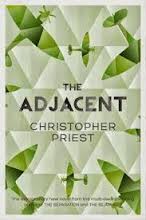
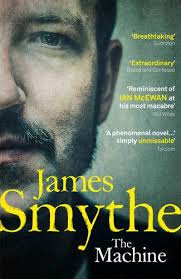
 © 2008-2025 Pan Macmillan
© 2008-2025 Pan Macmillan
Great post, can't wait to read them all.